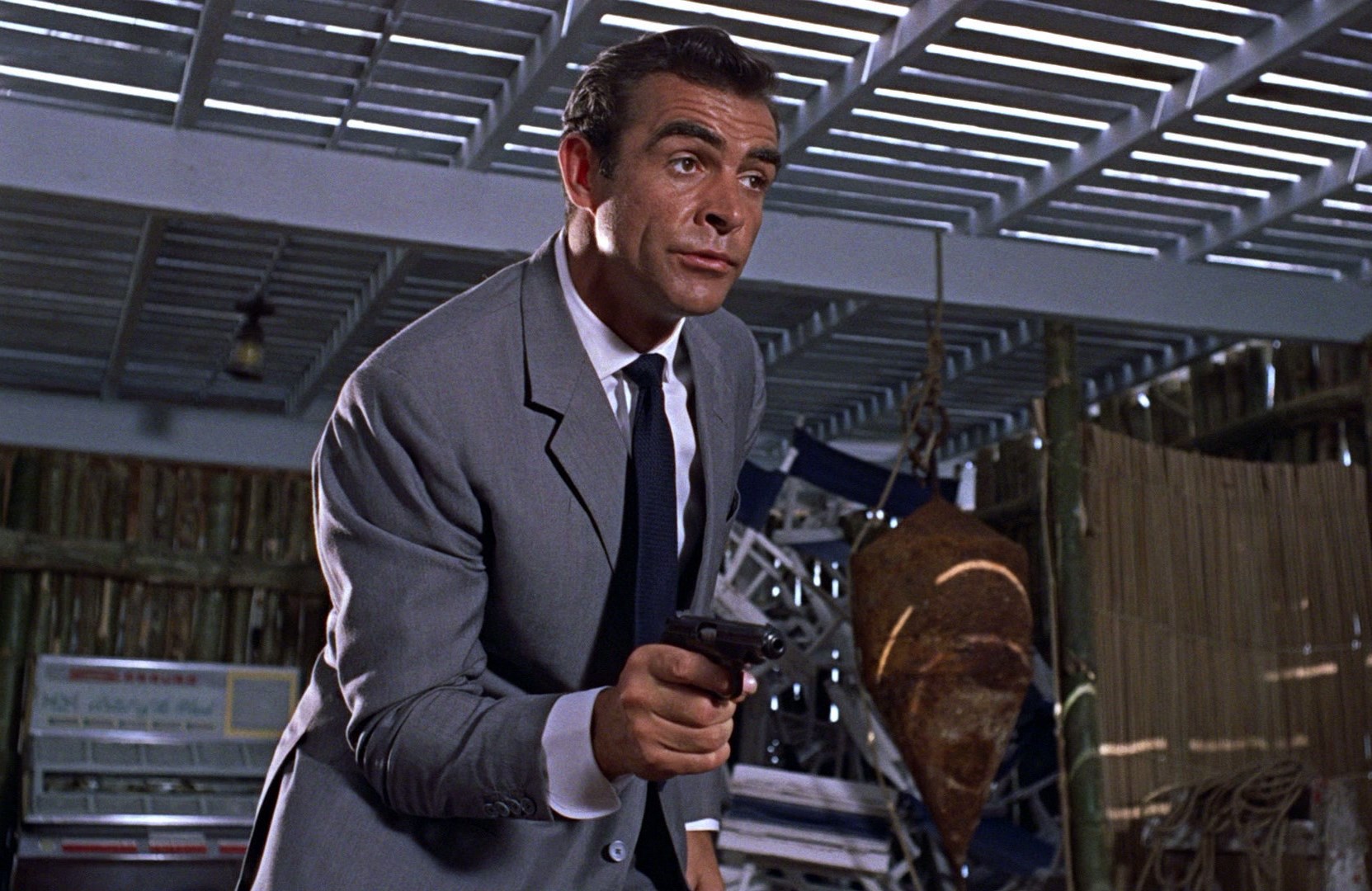The Intricate Mind of 007: A Psychological Analysis of James Bond
Unraveling the Charm, Narcissism, and Psychopathy of Cinema's Most Iconic Spy

James Bond, the iconic MI6 agent, has captivated audiences for decades with his charm, courage, and sophistication. However, beneath the surface of fast cars, dangerous missions, and romantic encounters, lies a complex psychological landscape that often goes unnoticed. This article delves into the dark psychology of James Bond, exploring the character’s narcissistic tendencies, potential psychopathy, and the paradoxical fascination audiences have with this iconic figure.
We will dissect the layers of Bond’s personality, his relationships, and his actions, providing a comprehensive understanding of what makes 007 tick. From his narcissistic tendencies to his potential psychopathy, we will unravel the complexities of Bond’s character and shed light on the psychological aspects that make him one of the most intriguing figures in film history.
James Bond: The Enigmatic Spy
James Bond, an MI6 agent, is a character that exudes confidence and charm, attracting admiration and intrigue wherever he goes. His physical fitness, combat skills, and ability to handle fast cars with ease make him an ideal male character in the film franchise. However, beneath his seemingly unflappable exterior, Bond is a character haunted by the demons of his past. His experiences have taken a toll on his mental health, leaving him somewhat damaged and vulnerable. He seeks refuge in meaningless relationships, cheap thrills, and alcohol, using them to mask his inner turmoil.

Narcissism in James Bond
One of the key aspects of Bond’s personality is his narcissism. He is often seen making decisions that prioritize his own feelings, even if it means compromising the success of a mission. His interactions with women, in particular, highlight his narcissistic tendencies. Bond has a fixation on flirting with women, sleeping with them, and then departing once the sun rises. This behavior can be seen as a means of seeking validation to affirm his grandiose self-image. However, it’s also possible that Bond’s detachment issues stem from losing both parents at a young age, making him less likely to form love attachments and risk heartbreak.

Is James Bond a Psychopath?
The question of whether James Bond is a psychopath is a complex one. While he excels at his job, his willingness to kill and engage in risky behavior raises concerns about his mental state. Bond’s lack of guilt, indifference towards others, and willingness to cause chaos to achieve his goals are all traits that could be associated with psychopathy. However, it’s important to note that Bond also has the ability to form meaningful connections when he chooses to do so, suggesting that there may be more humane layers beneath his damaged exterior.

The Charm of James Bond
Despite potential red flags, viewers can’t help but be drawn to Bond’s character. His charm is one of his most utilized skills because he understands its ability to help him achieve his goals. He can manipulate people to aid him in his mission and maintains his composure and charm even in the face of danger. This ability to charm and manipulate is a common trait amongst actual psychopaths, who often use these skills to excel in their careers.

The Human Side of James Bond
Despite his psychopathic tendencies, Bond is capable of empathy and genuine emotion. The passing of M, his superior, is a painful example of this. Initially attempting to maintain emotional composure, Bond ultimately breaks down, revealing his capacity for empathy. It’s possible that Bond intentionally represses his emotions in order to better fulfill his MI6 duties. His relationships with Vesper and Madeleine also show that he is capable of having feelings for people, but he must suppress it to perform his duties effectively.

1. How does James Bond’s past influence his personality?
James Bond’s past plays a significant role in shaping his personality. Losing both parents at a young age was a traumatic experience that has had a lasting impact on his ability to form close relationships. This early loss may contribute to his tendency to engage in short-term relationships and avoid emotional attachments, as a way to protect himself from further heartbreak.
In addition, his past experiences as an MI6 agent have also influenced his personality. The high-risk nature of his job and the constant exposure to danger have hardened him, making him appear cold and detached. However, this is likely a coping mechanism that allows him to function effectively in high-stress situations. It’s important to remember that despite his tough exterior, Bond is capable of empathy and genuine emotion.
2. Why is James Bond considered a narcissist?
James Bond displays several characteristics that are commonly associated with narcissism. He often prioritizes his own feelings and desires, even when they conflict with the objectives of his mission. This self-centered behavior suggests a high level of self-importance, a key trait of narcissism.
Furthermore, Bond’s interactions with women highlight his need for validation. He frequently engages in short-term relationships, seeking admiration and affirmation from his romantic partners. Once he receives this validation, he often loses interest and moves on, treating these relationships as disposable. This pattern of behavior suggests a lack of empathy and an excessive need for admiration, both of which are characteristic of narcissistic personality disorder.
3. Is James Bond truly a psychopath?
Determining whether James Bond is a psychopath is a complex issue. On one hand, he exhibits several traits associated with psychopathy, such as a lack of guilt, a willingness to engage in risky behavior, and a tendency to manipulate others for his own benefit. These characteristics, combined with his charm and charisma, align with the profile of a typical psychopath.
On the other hand, Bond also shows signs of empathy and is capable of forming meaningful relationships, traits that are not typically associated with psychopathy. These contradictory aspects of his personality suggest that while he may exhibit psychopathic tendencies, he does not fully fit the profile of a psychopath. It’s possible that his job as an MI6 agent, which requires him to suppress his emotions and act ruthlessly, contributes to these tendencies.
4. How does James Bond use his charm to his advantage?
James Bond’s charm is one of his most potent weapons. He uses it to manipulate others, gain their trust, and achieve his objectives. His charm allows him to navigate social situations with ease, making him an effective spy.
In addition, Bond’s charm also serves to mask his darker traits. His charisma and charm can be disarming, causing others to underestimate him or overlook his more ruthless actions. This ability to charm and manipulate is a common trait among psychopaths, who often use these skills to their advantage.
5. Can James Bond form meaningful relationships?
Despite his tendency to engage in short-term relationships, James Bond is capable of forming meaningful connections. His relationships with Vesper Lynd and Madeleine Swann, for example, show that he is capable of deep emotional attachment.
However, these relationships are the exception rather than the rule. Bond’s job as an MI6 agent puts him in constant danger, making it difficult for him to maintain long-term relationships. Furthermore, his past traumas may make him hesitant to form close emotional bonds, as a way to protect himself from further heartbreak.
6. How does James Bond’s profession influence his personality?
James Bond’s profession as an MI6 agent hasa significant influence on his personality. His job requires him to be constantly on guard, make quick decisions, and often put his life at risk. These high-stress situations have hardened him, making him appear cold and detached. However, this is likely a coping mechanism that allows him to function effectively in his line of work.
Furthermore, his profession requires him to manipulate others and sometimes act ruthlessly to achieve his objectives. These aspects of his job may contribute to his narcissistic and psychopathic tendencies. However, it’s important to remember that these traits do not define him entirely. Despite his tough exterior, Bond is capable of empathy and genuine emotion.
7. How does James Bond cope with his traumatic past?
James Bond copes with his traumatic past in several ways. One of his primary coping mechanisms is his avoidance of emotional attachments. By engaging in short-term relationships, he protects himself from the potential heartbreak that comes with deeper emotional connections.
Additionally, Bond seeks refuge in cheap thrills and alcohol, using them to mask his inner turmoil. His job as an MI6 agent also provides a distraction from his past, as the high-risk nature of his work requires his full attention and focus. However, these coping mechanisms are not always healthy and may contribute to his narcissistic and psychopathic tendencies.
8. Why is James Bond considered an iconic figure despite his flaws?
James Bond is considered an iconic figure for several reasons. His charm, courage, and sophistication make him a compelling character that audiences admire. Despite his flaws, viewers are drawn to his complex personality and the exciting, high-risk world in which he operates.
Furthermore, Bond’s flaws make him a more relatable and human character. His struggles with his past, his difficulty forming close relationships, and his inner turmoil add depth to his character and make him more than just a suave, fearless spy. These aspects of his personality make him a fascinating character to watch and analyze.
9. How does James Bond’s sense of duty influence his actions?
James Bond’s sense of duty is a driving force behind many of his actions. As an MI6 agent, he is committed to protecting his country, even if it means putting his life at risk. This sense of duty often leads him to make decisions that prioritize the mission over his own personal feelings or desires.
However, his sense of duty can also lead him to act ruthlessly or make decisions that put others at risk. Despite this, Bond firmly believes in the importance of his work and is willing to make personal sacrifices to fulfill his duties. This strong sense of duty is a key aspect of his character and is one of the reasons why he is such an effective agent.
10. How does James Bond’s personality evolve over time?
James Bond’s personality evolves significantly over time. In the earlier films, he is portrayed as a suave, fearless spy who is seemingly invincible. However, as the series progresses, we see a more vulnerable side to Bond. His past traumas and the high-stress nature of his job begin to take a toll on his mental health, revealing a more complex and damaged character.
Despite these changes, Bond’s core traits – his charm, courage, and sense of duty – remain consistent. These traits, combined with his evolving personality, make him a dynamic and compelling character that continues to captivate audiences.
Conclusion
James Bond is a character that navigates a fine line between exhibiting psychopathic tendencies and developing them as a means of achieving success in his line of work. His charm, courage, and sense of duty, combined with his complex psychological landscape, make him a compelling character that audiences can’t help but be drawn to.
Despite his flaws and the dark aspects of his personality, Bond remains an iconic figure in film history. His ability to charm, his courage in the face of danger, and his complex psychological profile make him a character that is as intriguing as he is enigmatic. As we continue to watch and analyze Bond, we gain a deeper understanding of his character and the psychological aspects that make him tick.










One Comment